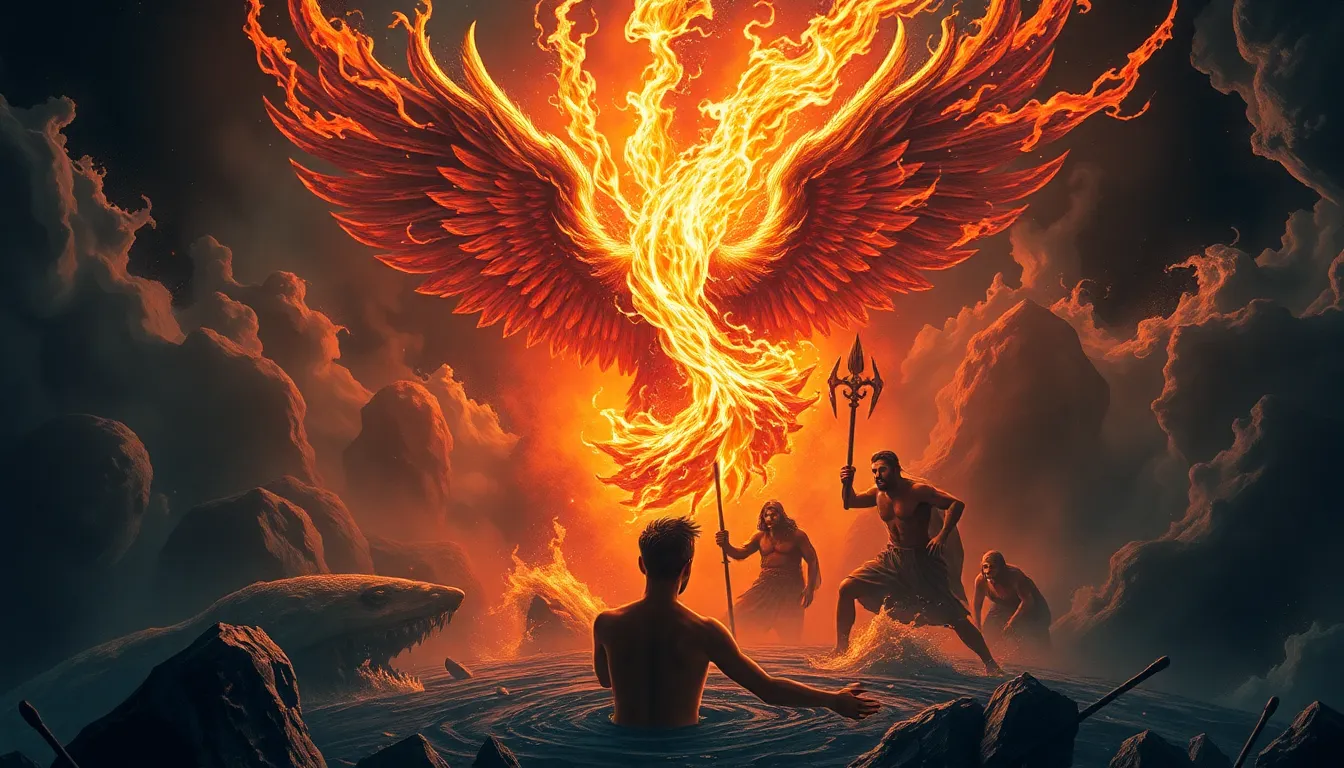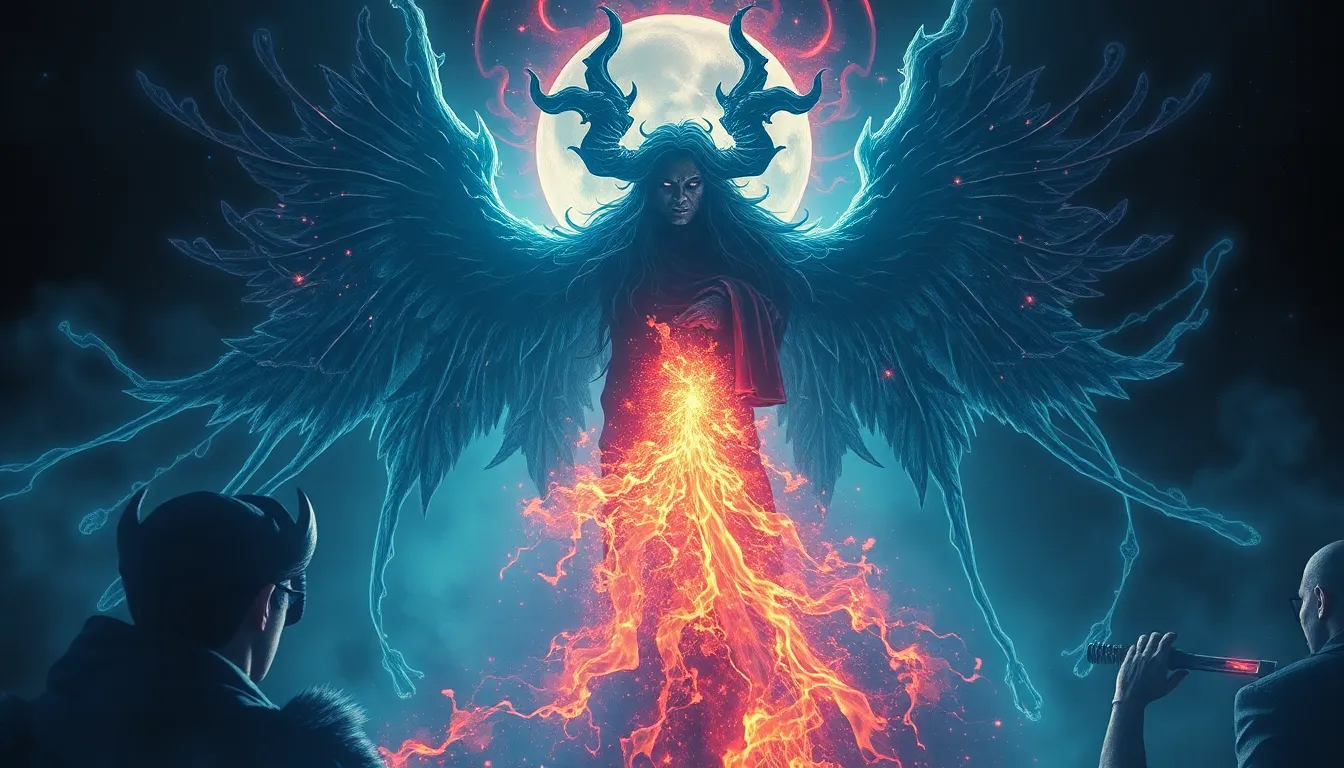When Gods Strike: The Most Terrifying Divine Punishments in Mythology
I. Introduction
Throughout history, mythology has served as a lens through which cultures interpret the world around them. One recurring theme in these myths is the concept of divine punishment—retributions imposed by gods upon mortals for actions deemed sinful or disrespectful. This theme underscores the moral frameworks of various societies and illustrates the consequences of human behavior in relation to the divine.
Exploring mythological punishments is crucial for understanding the values and beliefs of different cultures. These tales often reflect society’s fears and ethical standards, providing insight into how ancient people understood justice and order. In this article, we will delve into the terrifying punishments meted out by gods across different mythologies, highlighting their significance and the lessons they impart.
This discussion will be structured into sections focusing on various mythological traditions, including Greek, Norse, Hindu, Egyptian, Mesopotamian, and Indigenous mythologies. Each section will examine specific stories of divine retribution and the moral implications behind them.
II. The Concept of Divine Justice
Divine justice is a concept that transcends cultures, often embodying the belief that divine beings enforce moral order and punish wrongdoing. This section explores how different societies define and implement divine justice.
A. Definition of divine justice in various cultures
In many cultures, divine justice is seen as an absolute form of retribution that operates independently of human laws. It often reflects a moral code believed to be established by the gods. For instance:
- In ancient Greece, the gods were seen as arbiters of justice, often punishing hubris and moral failures.
- In Hinduism, the concept of karma suggests that every action leads to corresponding consequences, which can be seen as a form of divine justice.
- In Indigenous cultures, spirits often enforce moral behaviors, punishing those who disrupt the harmony of nature.
B. The role of gods as enforcers of moral order
Gods are often depicted as enforcers of moral order, ensuring that balance is maintained within the universe. They act as both protectors and punishers, embodying the duality of mercy and wrath.
C. Comparison of human justice systems to divine retribution
While human justice systems are based on laws and societal norms, divine retribution is often portrayed as absolute and impartial. Unlike human justice, which can be influenced by biases and corruption, divine punishment is believed to be executed with perfect knowledge and fairness.
III. Greek Mythology: The Wrath of the Olympians
Greek mythology is rich with stories of divine punishment, showcasing the Olympian gods’ tendency to enact severe retributions for mortal transgressions.
A. Zeus and the punishment of Prometheus
Prometheus, a Titan, defied Zeus by stealing fire from the gods and giving it to humanity. As punishment, Zeus condemned him to eternal torment, where an eagle would eat his liver daily, only for it to regenerate each night. This story illustrates the theme of hubris and the severe consequences of defying divine authority.
B. Hera’s vengeance on Heracles
Hera, the wife of Zeus, harbored a deep resentment toward Heracles, the son of Zeus and a mortal woman. In her wrath, Hera subjected Heracles to a series of twelve labors, each more daunting than the last, as punishment for his very existence. This narrative reflects the complexities of divine jealousy and the harshness of retribution.
C. The fate of the Trojan War’s instigators
The Trojan War, a significant event in Greek mythology, was triggered by the gods’ desires and rivalries. The instigators, such as Paris and Helen, faced dire consequences, including the destruction of Troy and the suffering of countless individuals. This war serves as a reminder of the catastrophic results of divine manipulation and human folly.
IV. Norse Mythology: The Consequences of Betrayal
Norse mythology is filled with tales of betrayal and the subsequent divine punishments that follow, particularly involving the trickster god Loki.
A. Loki’s treachery and his ultimate fate
Loki, known for his cunning and deceit, played a significant role in the death of the beloved god Baldr. As punishment, the gods captured Loki and imprisoned him in a cave, where venom was dripped onto his face. This severe punishment underscores the Norse belief in the consequences of treachery and deceit.
B. The punishment of the giants and their conflicts with the gods
The giants, often in conflict with the gods, faced divine retribution for their attempts to disrupt the order of the cosmos. Their battles with the gods typically ended in catastrophic consequences for the giants, symbolizing the triumph of divine order over chaos.
C. Ragnarok: The end as divine retribution
Ragnarok, the prophesied end of the world in Norse mythology, represents the ultimate divine retribution. The gods, including Odin and Thor, face their enemies in a final battle, resulting in widespread destruction. This mythological event serves as a reminder of the cyclical nature of life and the inevitability of divine judgment.
V. Hindu Mythology: The Cycle of Karma and Divine Retribution
In Hindu mythology, the concept of karma plays a pivotal role in divine punishment, illustrating the belief that every action has consequences.
A. The story of King Harishchandra and his trials
King Harishchandra, renowned for his unwavering commitment to truth and righteousness, faced immense trials orchestrated by the sage Vishwamitra. Despite his noble character, he experienced severe suffering as a test of his virtue. This narrative exemplifies the complex interplay between virtue, suffering, and divine justice in Hindu belief.
B. The curse of Draupadi and the consequences for the Kauravas
Draupadi, a pivotal figure in the Mahabharata, was humiliated by the Kauravas during a dice game. Her curse led to the downfall of the Kauravas in the ensuing war, emphasizing the idea that divine justice can manifest through the actions of mortals and the consequences of their misdeeds.
C. The concept of karma as a form of divine punishment
Karma, the principle that every action has a corresponding reaction, is fundamental in Hindu mythology. This belief in karma serves as a continuous form of divine punishment, where individuals face the consequences of their actions in this life or the next.
VI. Egyptian Mythology: The Judgment of the Dead
In ancient Egypt, the afterlife was governed by strict moral codes, with Osiris presiding over the judgment of souls.
A. The role of Osiris in the afterlife
Osiris, the god of the afterlife, plays a crucial role in determining the fate of souls. Those who lived righteously were granted eternal life, while the wicked faced dire consequences.
B. The weighing of the heart against Ma’at’s feather
In the afterlife, the deceased’s heart was weighed against the feather of Ma’at, representing truth and justice. If the heart was lighter, the soul was deemed worthy; if heavier, it was devoured by Ammit, a fearsome creature, illustrating the consequences of one’s earthly actions.
C. Punishments for the impure: The fate of the souls
Souls deemed impure faced eternal punishment in the underworld, emphasizing the importance of living a life aligned with Ma’at’s principles. This process of judgment serves as a powerful reminder of the connection between morality and divine retribution in Egyptian belief.
VII. Mesopotamian Myths: The Fury of the Gods
Mesopotamian myths often depict the gods as powerful beings capable of immense wrath, delivering severe punishments for human transgressions.
A. Enlil’s wrath and the Great Flood
Enlil, the god of wind and storms, unleashed the Great Flood as punishment for humanity’s sins. This catastrophic event serves as a divine retribution for the moral failings of mankind, echoing similar themes found in other cultures.
B. The punishment of Gilgamesh’s enemies
In the Epic of Gilgamesh, the hero faces retribution not only for his own actions but also for the actions of his enemies. The gods intervene, showcasing their power and the consequences of defiance.
C. Divine decrees in the Epic of Gilgamesh
The Epic of Gilgamesh illustrates how divine decrees shape the lives of mortals, with the gods implementing punishments that reflect their will. These narratives underscore the belief in a higher moral order enforced by divine beings.
VIII. Indigenous Myth



